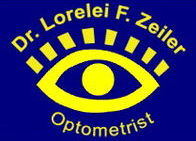
For millions of people around the world, glasses are the key to seeing clearly. Whether you’re struggling to read signs from afar or having trouble focusing on close objects, glasses can help correct your vision.
But have you ever wondered how these simple devices work?
Here's how glasses correct common vision issues and what makes them essential for optimal eye health.
The Science Behind Vision Correction
To understand how glasses work, it’s helpful to first understand how the eye functions. The eye acts like a camera, focusing light onto the retina at the back of the eye. For clear vision, this light needs to focus directly on the retina.
However, if you have a refractive error—like nearsightedness, farsightedness, or astigmatism—the light doesn’t focus correctly, causing blurry vision.
That’s where glasses come in. By using specially designed lenses, glasses adjust how light enters the eye, allowing it to focus properly on the retina.
Different Vision Issues Corrected by Glasses
Nearsightedness (Myopia):
For people with myopia, distant objects appear blurry because light focuses in front of the retina instead of on it. Glasses with concave lenses correct this by spreading light before it enters the eye, allowing it to focus correctly.
Farsightedness (Hyperopia):
Those with hyperopia have difficulty seeing nearby objects because the light focuses behind the retina. Convex lenses in glasses correct this by bending the light inward, bringing the focus onto the retina.
Astigmatism:
Astigmatism occurs when the cornea or lens of the eye is irregularly shaped, causing blurred vision at all distances. Glasses with cylindrical lenses are used to compensate for this irregular shape, helping light focus properly on the retina.
How Lenses Work
Lenses are the heart of glasses. Each lens is carefully crafted based on your unique prescription, which is determined by an eye exam. The prescription details the amount of correction needed for each eye.
Lenses come in different materials, such as plastic, polycarbonate, and high-index plastic, each offering benefits in terms of weight, durability, and thickness. The Office of Dr. Lorelei Zeiler helps you choose the best type of lens based on your vision needs and lifestyle.
Frames: Fashion and Functionality
While lenses correct your vision, the frames hold them in place—and they do much more than that! The right frames ensure your lenses sit in the optimal position on your face, allowing for the best possible correction.
Glasses frames also offer an opportunity to express your personal style, making them a unique combination of fashion and function.
The Office of Dr. Lorelei Zeiler a wide range of stylish frames at her optical practice, ensuring that you find a pair that not only suits your face but also feels comfortable for daily wear.
Choosing the Right Glasses
Finding the right pair of glasses is about more than just your prescription. It’s important to choose lenses and frames that fit your lifestyle.
For instance, if you spend a lot of time outdoors, you may want lenses with UV protection or transition lenses that darken in the sun. For people with active lifestyles, lightweight and durable frames are ideal.
At The Office of Dr. Lorelei Zeiler’s practice, we take the time to help you select glasses that are both functional and fashionable.
Book your eye exam with The Office of Dr. Lorelei Zeiler today and discover the perfect pair of glasses for your vision needs. Clear sight starts here!
